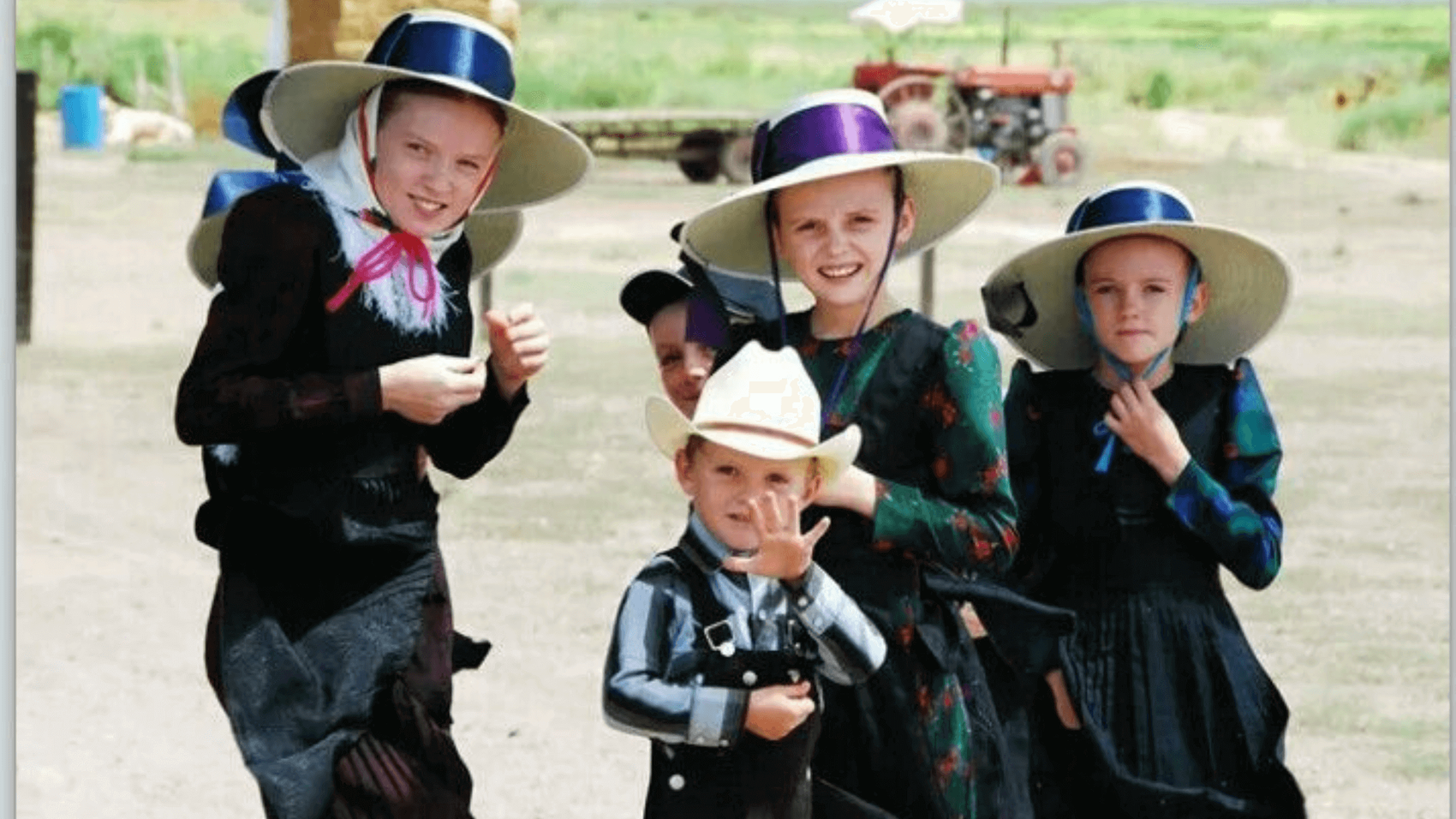 Did you know that Lancaster County, Pennsylvania, is home to the longest-standing Old Order Amish community on earth? When we refer to the “plain community," we are speaking of Anabaptist groups that live out traditional values that are rarely altered to match the popular culture. The Old Order Amish are one such group, as are several Mennonite groups.
Did you know that Lancaster County, Pennsylvania, is home to the longest-standing Old Order Amish community on earth? When we refer to the “plain community," we are speaking of Anabaptist groups that live out traditional values that are rarely altered to match the popular culture. The Old Order Amish are one such group, as are several Mennonite groups.
Here are five tips that will help you understand cultures and people within the plain community!
1. Amish & Mennonites Share a Common Ancestry
 Amish and Mennonite heritage was conceived during the 1520s in Zurich, Switzerland, amid the rumblings of Europe’s Reformation period, when several educated young men began reading the Bible in its original languages. The men met often to study and discuss God’s Word together and to pray.
Amish and Mennonite heritage was conceived during the 1520s in Zurich, Switzerland, amid the rumblings of Europe’s Reformation period, when several educated young men began reading the Bible in its original languages. The men met often to study and discuss God’s Word together and to pray.
Self-study of the Bible was radical, but the friends made an even bolder statement one January day in 1525, when Conrad Grebel baptized his friend, George Blaurock. George then baptized the rest of the group. Confessing Jesus as Lord and becoming baptized as an adult was unheard-of and seen as heretical. Despite severe opposition, the men’s radical movement grew, and its followers became known as “Anabaptists” or, “the re-baptizers."
Anabaptist leaders taught their followers to study and follow all of the teachings of the New Testament. They continued performing adult baptisms outside of the established church structure, an act that was punishable by death. Persecution, ostracism, torture, and death were the expectations of early Anabaptist trailblazers. Their stories were later compiled in the book Martyr’s Mirror by Thieleman J. Van Braght.
As the reformation movement spread across Europe, Menno Simmons, a former priest within the Catholic church, rose to leadership in the Anabaptist movement after spending years studying, questioning, and searching for truth. Menno became a traveling evangelist, producing many writings that were later published. Anabaptists following the principles trailblazed by Menno Simons became known as Mennonites.
Before long, a second Anabaptist subset, holding to a doctrine trailblazed by Jakob Ammann, split from the Mennonites and became known as the Amish.
Presently, more than 350,000 of the world’s population identify as Amish, predominately holding citizenship within Canada and the USA. Over two million people in the world identify as Mennonites. Mennonite communities are scattered all over the world.
Over time, many cultural and denominational influences have meshed with Amish and Mennonite subsets of the Anabaptist denomination, resulting in strikingly varied expressions of practice. Some groups are now indistinguishable from mainstream culture. Within the most traditional groups, such as the Old Order Amish, changes have taken place more slowly.
2. Expressions of Belief Vary Widely Throughout the Plain Community
Many groups in the plain community live out counter-culture values. These can range anywhere from refusing to buy food on Sunday to abstaining from participation in the military. Historically, the Anabaptist mindset was that it is better to die than forsake one’s beliefs. In Old Order Amish tradition, this point of view supports the old practice of shunning, as one who forsakes their beliefs becomes “as dead” to their community.
If you live near a traditional Anabaptist settlement, you’ve probably watched Amish and Mennonites live out their beliefs in quite a variety of ways. As a newcomer, one can easily feel bewildered. You may find yourself thinking, “With such a vast array of religious expressions, how will I ever sort out what to expect when someone says they are, "Anabaptist"?"
Truthfully, it would be as easy to categorize a “typical Anabaptist” as it would be to categorize a “typical American." Sure, Americans share a few common values, such as the value of liberty. But how each American defines liberty, and what specific area they seek liberty in, differs from person to person.
The same is true of the plain community. Yet, within the more traditional Anabaptist subsets, three beliefs remain standard:
· Baptism takes place upon confession of faith, not as an infant.
· Salvation is conditional.
· The Bible’s teachings are meant to be followed literally.
Applying for a job in the plain community? Want to understand the culture a bit more before you commit? Good news: all humans love to be understood. If you have questions about plain community religion or tradition, just ask!
3. The Plain Community is Not Anti-Progressive
 “Backwards”, “uneducated”, and “anti-progressive”… these stigmas are commonly tagged on people of the plain community. Don’t fall for it.
“Backwards”, “uneducated”, and “anti-progressive”… these stigmas are commonly tagged on people of the plain community. Don’t fall for it.
Many Mennonites prioritize a college education, climbing swiftly to the top of their field in education, business, or technology. Teens take their first voluntary service trips as early as age thirteen, visiting countries impacted by disaster, participating in reconstruction projects, and soaking up their fill of global culture, cuisine, and tourism. Business owners and educators enroll in online classes, studying late into the night to advance their knowledge or degrees—while also working full-time and participating in close-knit family life.
Among Old Order Amish communities, all children are bi-lingual, and most become tri-lingual by the time they’ve completed the eighth grade. Instead of entering high school, teens leap into the Amish version of vocational-technical school, often knowing a trade by the time they’ve turned sixteen. Motivated individuals own a small business before they’re out of their teens.
What about technology? Anabaptist leaders have been known to fight hard against secular influence. This does not mean they don’t adapt to a changing world. All communities have changed—some simply change faster than others.
Although the use of phones is regulated on Old Order Amish properties, most Old Order Amish business owners are allowed to own and use a smartphone.
Several Anabaptist groups avoid TV, radio, and/or the internet. This does not stop them from marketing their products and services on these platforms. They simply hire a third party.
As a job seeker, you hold the power to offer an Anabaptist employer your wealth of experience—no matter what that experience is. Don’t assume failure just because you operate on different platforms or hold opposing worldviews. Collaboration is powerful! Your experience may be just what your new boss is waiting for to launch his company to the next level.
4. Non-Resistant, But Not Pushovers
 Heroes of the Anabaptist faith were persecuted, tortured, and killed via horrific methods for their beliefs. To this day, tourists can view three human cages hanging in the windows of St. Lambert’s Church in Munster, where the disfigured bodies of three Anabaptist leaders were left to rot as a warning to passersby. (Link to story: The Three Terrifying Cages on a Church Spire Where Rebels Once Rotted (thevintagenews.com)).
Heroes of the Anabaptist faith were persecuted, tortured, and killed via horrific methods for their beliefs. To this day, tourists can view three human cages hanging in the windows of St. Lambert’s Church in Munster, where the disfigured bodies of three Anabaptist leaders were left to rot as a warning to passersby. (Link to story: The Three Terrifying Cages on a Church Spire Where Rebels Once Rotted (thevintagenews.com)).
Early Anabaptists were beheaded, buried alive, and burned at the stake. They gave up family, friends, social standing, property, freedom, and, in many cases, their very lives in pursuit of religious liberty. It shouldn’t shock you, then, to discover that feisty determination continues to surge through nearly every Anabaptist vein.
Don’t expect your plain community employer to be a pushover. Instead, expect a backbone forged to iron strength by a lifetime of counter-culture choices. Anabaptists live out their heritage of radical courage in many ways, but a soft-spined employer in the plain community will indeed be hard to find.
As a job seeker, you can gain respect in an Anabaptist workplace by displaying the best angles of your own tenacity. Whether that means closing deals, refusing to disobey SOPs, or speaking up when a change needs to happen, your employer will value teammates who are ready to put it all on the line.
5. Sunday is Rest Day… But It’s 100% Hustle Until Then
 You’ll be hard-pressed to find businesses in the Plain community that is open on Sunday. For job-seekers, this is great news! However, you can probably get lots of overtime if you work for an Anabaptist employer.
You’ll be hard-pressed to find businesses in the Plain community that is open on Sunday. For job-seekers, this is great news! However, you can probably get lots of overtime if you work for an Anabaptist employer.
Amish and Mennonite cultures praise hard work—and it’s no surprise, considering their history. Anabaptist pioneers overcame incredible hardships in pursuit of religious freedom, eventually fleeing their homelands to escape persecution. As refugees in a foreign land, dogged hustle was a skill necessary for survival. Long days of hard manual labor became an Anabaptist norm.
Today, plain community businesses continue their heritage of hustle, working long hours and frequently on Saturdays. When applying for a job within the plain community, be sure to inquire about the expectation for overtime, what your overtime rate will be, and how early in advance you need to request off for vacation (including if there are any blackout days.)
Holidays observed within the Plain community sometimes vary from the American norm. It’s a good idea to obtain your employer’s list of observed holidays upfront. You might be pleasantly surprised!
So, are you ready to bring your experience and skills to a workplace that thrives on courage, determination, out-of-the-box thinking, and full-fledged hustle? If so, a job in the plain community is the place for you!
Let’s do this!
